“We just couldn’t do everything in the time we had left”: Assassin’s Creed 3’s Creative Director looks back on the makings of a franchise black sheep
With Assassin’s Creed 3 Remastered on the way, Creative Director Alex Hutchinson reminisces on the game’s turbulent development
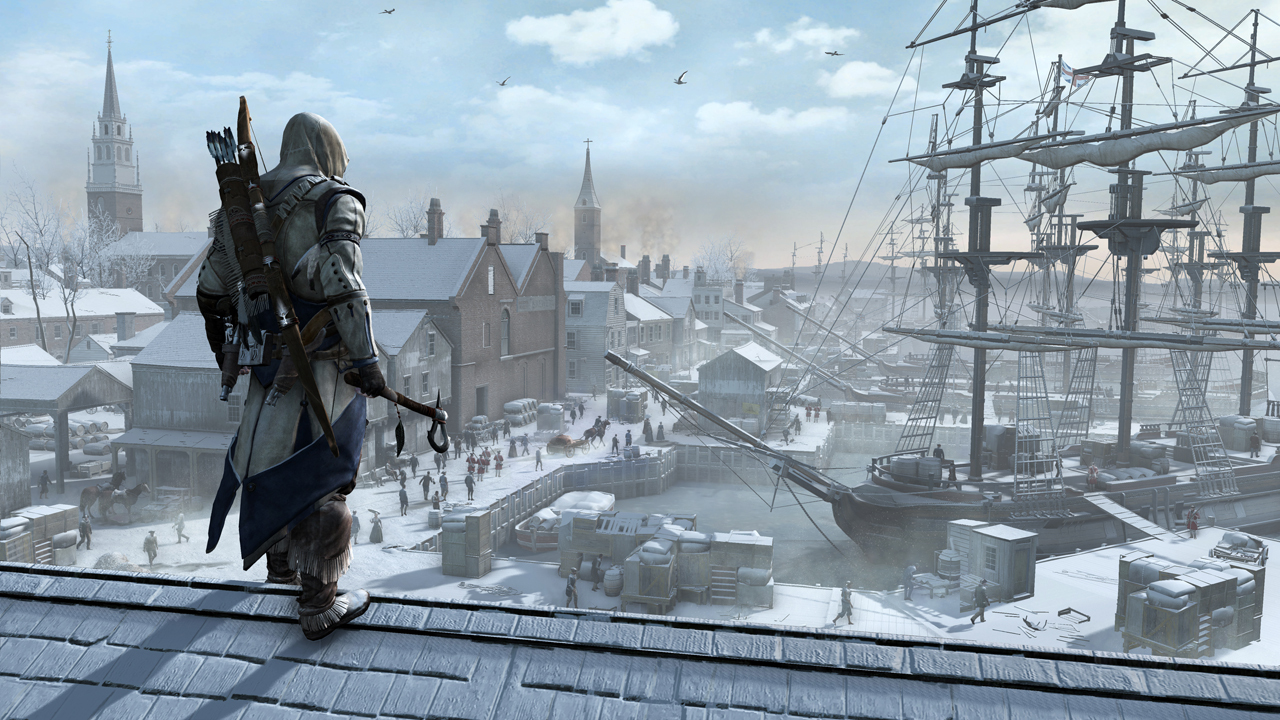
Nothing is true, everything is permitted, and Assassin’s Creed 3 is rubbish. This was the general consensus held by many in the years following Assassin’s Creed 3’s release in 2012, which had the unfortunate luxury of being the first instalment in Ubisoft’s open world action series to follow up Ezio’s storyline, and the last before the dawn of next-generation hardware. With the added pressure of Ubisoft’s largest marketing campaign ever, in which trailer after trailer promised a grand adventure across America at the height of its revolution, it’s no surprise that the immediate reaction to the game was one of extreme disappointment.
The soothing balm of time and hindsight, however, has allowed public opinion to soften somewhat on Assassin’s Creed 3, to the point where Ubisoft is even releasing a remaster of the game on PC, PS4, Xbox One, and Nintendo Switch later this month (free to owners of the Assassin’s Creed Odyssey season pass and bundled with Assassin’s Creed Liberation Remastered, the former PS Vita exclusive). In light of the upcoming launch, I thought it’d be a good time to catch up with Assassin’s Creed 3’s original Creative Director, Alex Hutchinson, to look back on the game’s challenging development cycle, starting at the beginning.
One man revolution
“After Assassin’s Creed: Revelations, sales were down to the series’ core fanbase,”explains Hutchinson. “So Assassin’s Creed 3’s primary job was to take a lot of risks by putting in new mechanics and building the series’ identity up from scratch. When it released, there was a lot of pressure, and people had… opinions, but also the sales were huge and we were seeing a lot of new players who’d never played Assassin’s Creed before.”
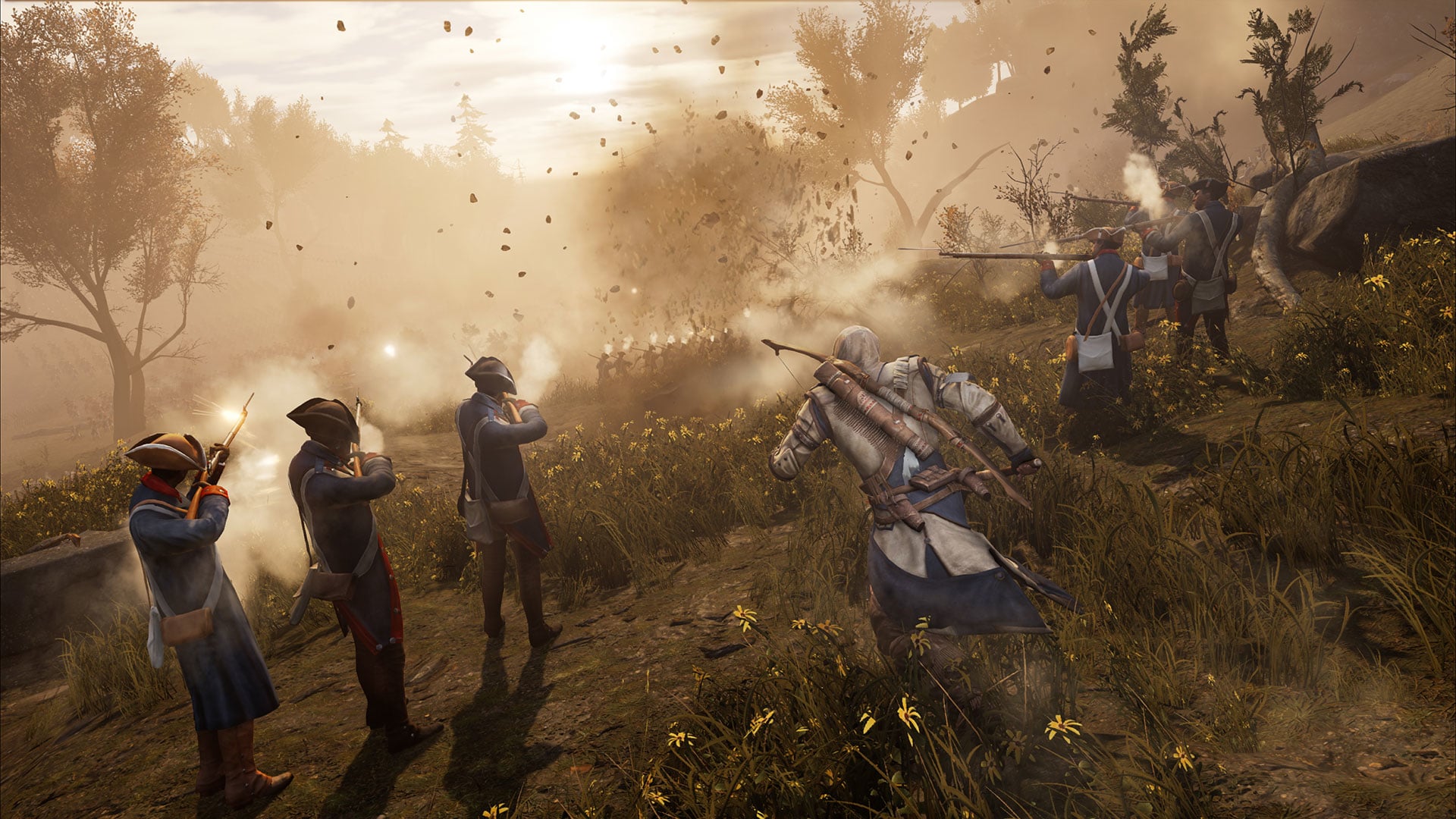
One of the “... opinions” players had about Assassin’s Creed 3 that Hutchinson refers to was regarding its controversial opening, in which you play as Connor’s father, Haytham Kenway, for a fair few hours before you eventually learn that he’s a Templar, the monastic cult that represent the creed’s long-running nemesis.
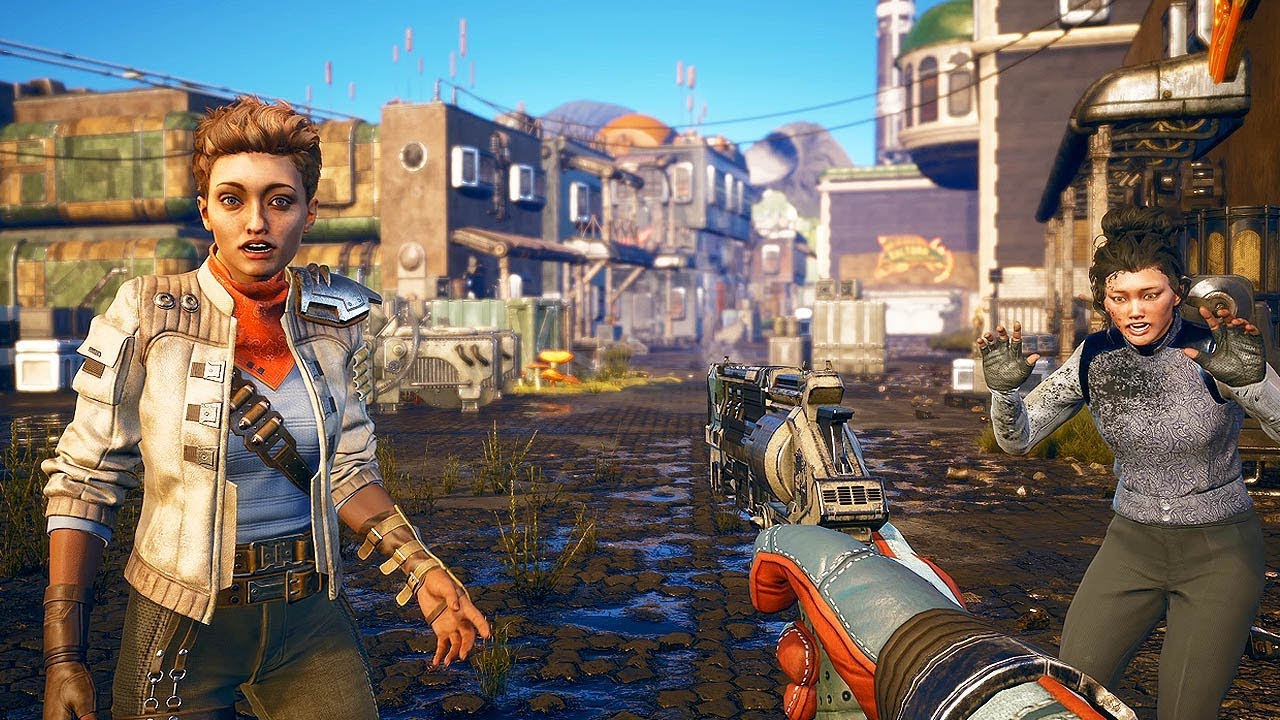
The biggest new games of 2019 (and beyond)
For someone who’d seen the game’s trailers of a tomahawk wielding assassin engaging in revolutionary wars and fighting his way across the natural American landscape, having to spend several hours in slow paced tutorials as a bourgeois colonist came across as a confounding misdirect to say the least. You can see where the initially hostile reaction to Assassin’s Creed 3 stemmed from, then, and Hutchinson admits this is something he would have changed had he been involved in the upcoming remaster.
“We knew we wanted a surprise start,” he tells GamesRadar. “These days, everyone knows everything before they buy a game, so to have Connor’s father open the story, along with that twist where he’s revealed as a Templar, still holds up as great idea that’s really effective. The thing we didn't realise until the last minute was just how long those early missions were gonna take. We didn’t get to test a complete, end-to-end walkthrough until quite late in development, and our ability to trim it down was really limited. We knew the opening was too long when we put it out, but we just couldn’t do everything in the time we had left.”
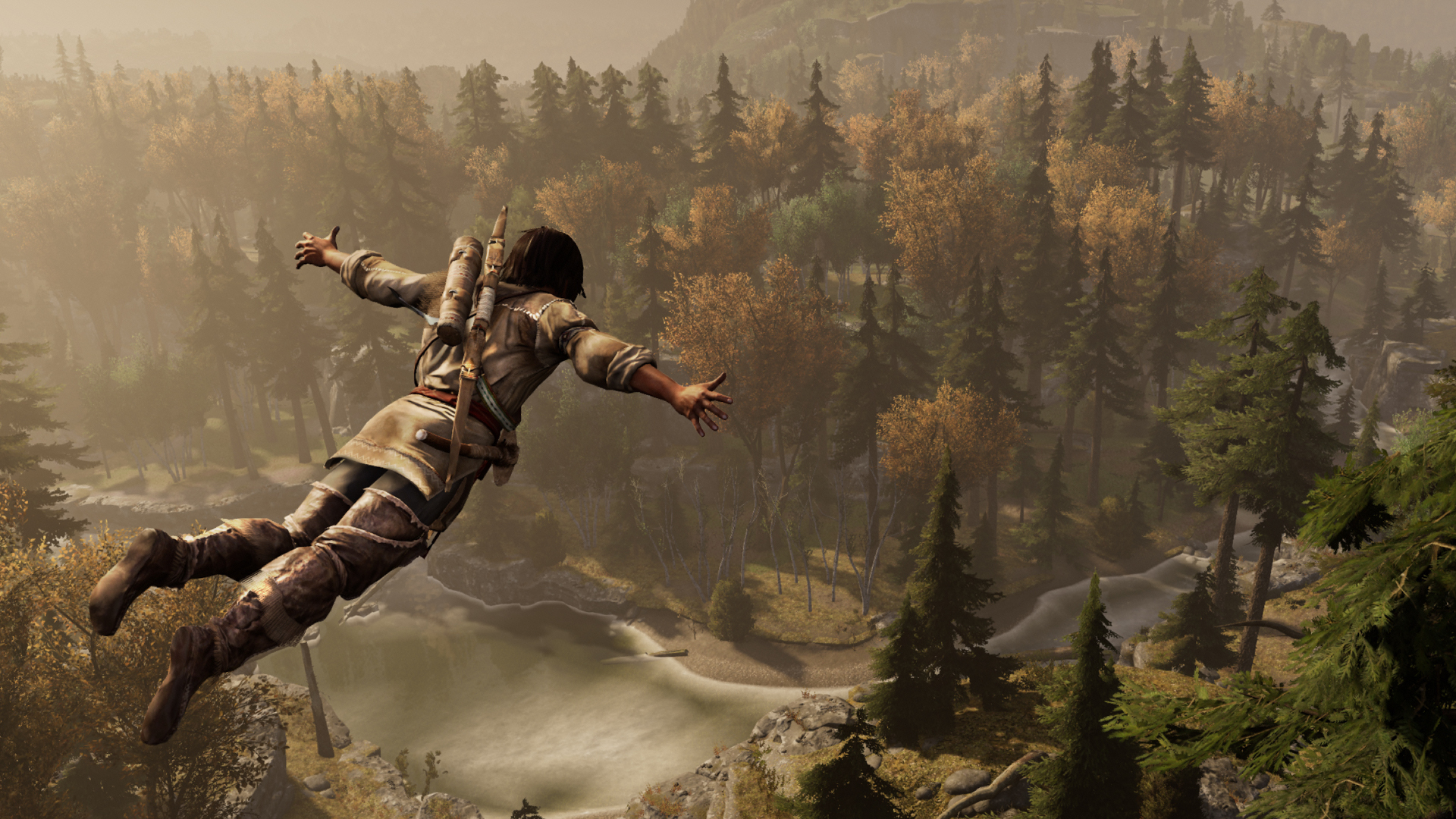
That said, Hutchinson still stands by the decision to keep Haytham’s existence a secret before Assassin’s Creed 3’s launch, and even admitted that no one outside of the development team knew of the character’s involvement in the story, so as to avoid any potential leaks. “We had so many things to talk about leading up to release; a new character and setting, the naval combat, the natural world… We had lots of stories to tell, so I wanted a few stories that were just for the player, and keeping it a secret was therefore a priority. Funnily enough, Haytham himself has become a very popular character. He’s turned up in other games, and his action figures sell really well, so as a character addition to the universe, it was a big success.”
Sign up to the GamesRadar+ Newsletter
Weekly digests, tales from the communities you love, and more
But there’s a reason players are beginning to look back on Assassin’s Creed 3 more fondly. It is, after all, responsible for introducing us to naval combat, which has gone on to become a fan favourite staple feature of the series, and is even the basis for Ubisoft’s upcoming standalone seafaring title Skull & Bones. While Assassin’s Creed: Black Flag was the game to really go to town with the pirating simulation, Hutchinson is proud to have been involved with its origins, and is somewhat regretful that the team didn’t make better use of it throughout Connor’s story.
“While we were developing the naval content, most of the team would come up to my desk and complain that Connor can’t be sailing a boat. He’s an assassin, not a pirate! So it makes me laugh that the next game starred an assassin who literally was a pirate, and now the naval combat is everywhere! It’s great when you introduce a feature into a franchise that resonates with people and sticks around, and to see that grow and flourish has been awesome.”
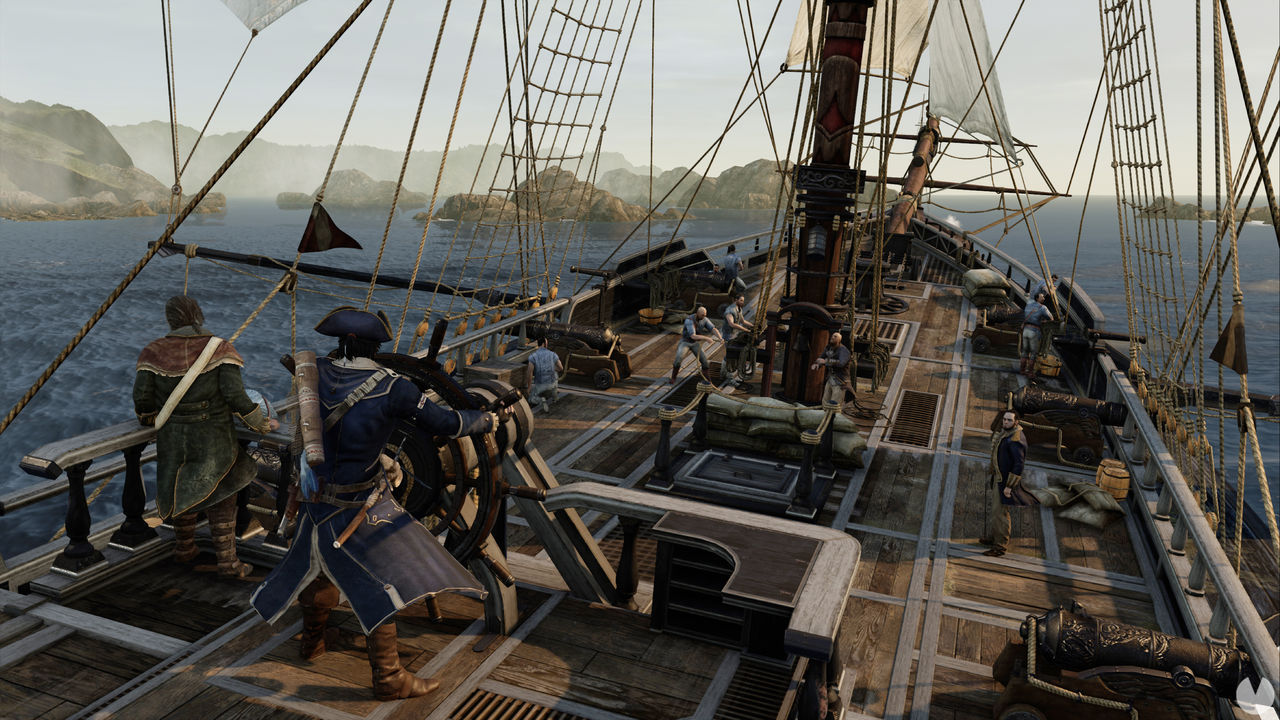
“But because we were unsure of how finished the naval stuff would be by launch, we put it to the side as ancillary content, and I think we should have frontlined both that and the Homestead content into the mainline story more, to make sure people did as much of them as possible. We found that the players who engaged with the extra content loved the game a lot more than those who just blasted through the main story, and I think that’s a shame.”
Requiescat in pace
But would Hutchinson actually have taken the opportunity to work on Assassin’s Creed 3 Remastered had Ubisoft called him up? After working on Far Cry 4 and the now cancelled Pioneer (“The last thing I did was that little bit in Watch Dogs 2, that’s the closest anyone will get to see of that game as I imagined it”), the developer has since left the mammoth publisher to found his own creation house, Typhoon Studios, and he’s too busy looking forward to think about what could have been.
“It’s hard to look back. Games have to act like any piece of artistic work and live in the moment. It’s fun to imagine a remaster, but you have to own the decisions that you made, enjoying the success and pondering the bits and pieces that you could have changed. I don't think it would be helpful to have any of the original team work on the remaster, but I’m really curious because I’ve seen nothing of the upcoming release, so I want to know what Ubisoft have done besides upressing the textures and so on.”

He has, however, been keeping up with the Assassin’s Creed franchise as a player, calling the last two games (Assassin’s Creed Origins and Assassin’s Creed Odyssey) “fantastic evolutions of the franchise’s identity.” Hutchinson is now working on a new adventure game, Journey to the Savage Planet, at Typhoon Studios, which he admits is a “radically different” kind of development experience to devising the next installment in an established franchise at Ubisoft.
"We were seeing a lot of new players who’d never played Assassin’s Creed before."
“To have a really small team in one location working on a new game with a new IP and no brand attached to it has been both a challenge and a relief. Mainly a relief to not have the weight of history or expectations behind what we’re doing! But at the same time that means we have to decide everything as we go along, and there’s a greater struggle to gain attention, but hopefully people will be excited.”
Before my conversation with Hutchinson came to an end, I had to ask him one last question about Assassin’s Creed 3: What happened to the canoe? The much hyped traversal mechnicac featured heavily in promotional screenshots leading up to the game’s release, but was nowhere to be seen in the final product.
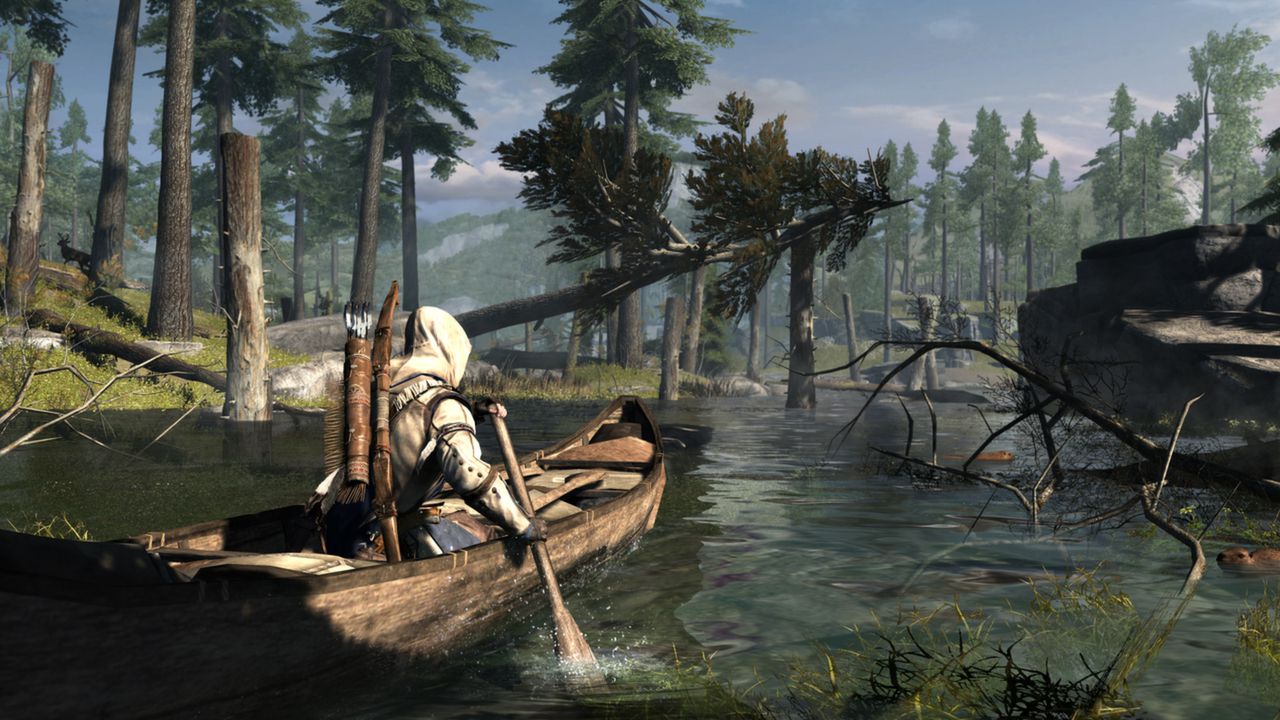
He laughs at the inquiry. “The problem with any game is that you’re making communicational material before the project is complete, so we had a bunch of prototypes and ideas floating around, and there was a canoe vehicle in the game early on. But when you have a character that’s already such an amazingly nimble navigation tool, the canoe is just boring, so we decided to ditch it. But it made for a really pretty screenshot, so the marketing team just kept using it!”
Interestingly, that canoe screenshot appeared for a short time on the store page for Assassin’s Creed 3 Remastered too, before being quietly removed after Ubisoft must have realised it was still a small case of false advertising. Whether the canoe ends up in the game or not, Remastered is another chance for Assassin’s Creed 3 to make its case, this time without the disadvantage of following up Ezio and a hyperbolic media blowout. Hutchinson himself intends to pick up the game and reacquaint with his contribution to AC universe later this month, and I’d recommend anyone previously turned off by Connor’s instalment to do the same. You might be surprised by what you find.
Find out where Assassin's Creed 3 comes on our list of the best Assassin's Creed games of all time (so far).
I'm GamesRadar's Features Writer, which makes me responsible for gracing the internet with as many of my words as possible, including reviews, previews, interviews, and more. Lucky internet!



